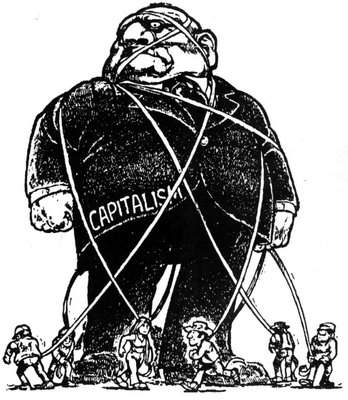
Here we go again.
"A White House controlled by an unpopular, highly partisan lame duck ..."
Wherever you look, there's lame-duck Bush limping across the White House lawn, or hobbling out to give a press conference.
"It's the same old slur," quacked an angry Bill Mandrake, president of the Society to Protect Less Abled Ducks (SPLAD). "Many of our seniors are on crutches because they gave up a limb for their country on some foreign stream or mere, and year after year they have to put up with these cheap innuendoes. Simply because a duck is on crutches or has a walking stick, it doesn't mean that same duck isn't playing a useful role in society, with many productive years ahead."
Mandrake pledges a renewed effort after last year's failed referendum to make the use of "lame duck" a hate crime.
According to Brewer's ever-useful 1910 Dictionary of Phrase and Fable "a lame duck in Stock Exchange parlance means a member of the Stock Exchange who waddles off on settlement day without settling his account. All such defaulters are blackboarded and struck off the list. Sometimes it is used for one who cannot pay his debts, one who trades without money."
Sounds like W.
Now, Can We Talk About Something Serious?
Now that the biennial democratic pretense here in the U.S.A. has run its course, can we talk about something serious? We can? Good. Hmmm. Ha! Here's a good one we can sink our teeth into for a few paragraphs: the distinct possibility that the world economic system could soon blow up in our faces. You say nobody mentioned this in Campaign 2006? Of course they didn't. Who said political campaigns have anything to do with reality?
Let me direct you to a recent series of polite coughs, reminiscent of a sheep quietly clearing its throat somewhere on a fog-bound hillside in the north of England. Aforementioned coughs emanated at the start of this week from the Financial Services Authority, (FSA), a body set up under the purview of the British Treasury a few years ago to monitor financial markets and protect the public interest by raising the alarm about shady practices and any dangerous slides towards instability.
In a briefing paper under the chaste title, "Private Equity: A Discussion of Risk and Regulatory Engagement", the FSA raises the alarm.
"Excessive leverage: The amount of credit that lenders are willing to extend on private equity transactions has risen substantially. This lending may not, in some circumstances, be entirely prudent. Given current leverage levels and recent developments in the economic/credit cycle, the default of a large private equity backed company or a cluster of smaller private equity backed companies seems inevitable. This has negative implications for lenders, purchasers of the debt, orderly markets and conceivably, in extreme circumstances, financial stability and elements of the UK economy."
Translation: It's about to blow!
"The duration and potential impact of any credit event may be exacerbated by operational issues which make it difficult to identify who ultimately owns the economic risk associated with a leveraged buy out and how these owners will react in a crisis. These operational issues arise out of the extensive use of opaque, complex and time consuming risk transfer practices such as assignment and sub-participation, together with the increased use of credit derivatives. These credit derivatives may not be confirmed in a timely manner and the amount traded may substantially exceed the amount of the underlying assets."
Translation: "The world's credit system is a vast recycling bin of untraceable transactions of wildly inflated value.
"The significant flow of price sensitive information in relation to private equity transactions creates considerable potential for market abuse Although transparency to existing investors is extensive, transparency to the wider market is limited and is subject to significant variation in methodology (e.g. with respect to valuation, fee disclosure etc) and format.The duration and potential impact of any credit event may be exacerbated by operational issues which make it difficult to identify who ultimately owns the economic risk associated with a leveraged buy out and how these owners will react in a crisis."
Translation: Crooks could blow us all up any minute now and we don't even know who's holding the detonator. And you thought Osama was a problem!
The problem is that the oversight and stability of the world credit system is no longer within the purview of familiar international institutions like the International Monetary Fund or the Bank of International Settlements. Private traders are now installed at all the strategic nodes, gambling with stratospheric sums in such speculative pyramids as the credit derivative market which was almost nonexistent in 2001, yet which reached $17.3 trillion by the end of 2005. Warren Buffett, America's most famous investor, has called credit derivatives "financial weapons of mass destruction."
On the political hustings there hasn't been a whisper about this, though the London Financial Times has been issuing frequent alarms, as have such well known figures here as Stephen Roach, chief economist at Morgan Stanley. As the great American historian Gabriel Kolko remarked in a detailed run-down on the crisis in CounterPunch at the end of July:
"Contradictions now wrack the world's financial system, and a growing consensus now exists between those who endorse it and those, like myself, who believe the status quo is both crisis-prone as well as immoral. If we are to believe the institutions and personalities who have been in the forefront of the defense of capitalism, and we should, it may very well be on the verge of serious crises."
Translation: Capitalism has its downsides, and right now we're at the edge of the precipice.
Alexander Cockburn and Jeffrey St. Clair's latest book, End Times: the Death of the Fourth Estate, will be published in February by CounterPunch Books/AK Press.
from Counterpunch












No comments:
Post a Comment